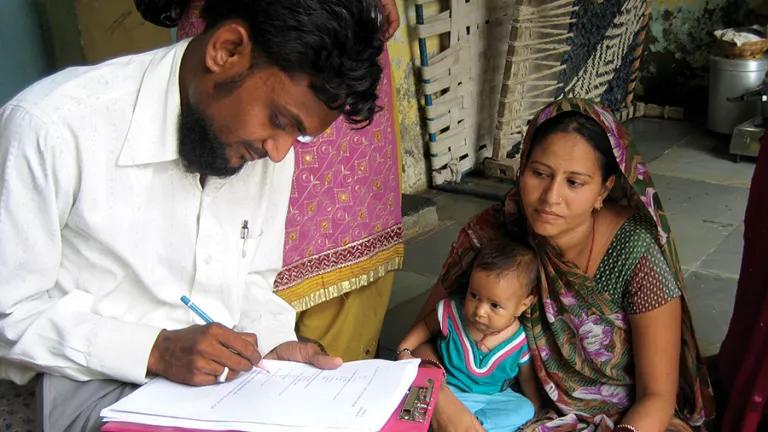Rising Temperatures, Deadly Threat: Preparing Communities in India for Extreme Heat Events
After a deadly heat wave hit the city of Ahmedabad in May 2010, the Ahmedabad Municipal Corporation (AMC) began to develop coordinated action to reduce the devastating health effects of heat stress on the local population.

Ahmedabad's Heat Action Plan and Research Materials
Higher daily peak temperatures and longer, more intense heat waves are becoming increasingly frequent globally due to climate change. Extreme heat events already have a significant impact in India. After a deadly heat wave hit the city of Ahmedabad in May 2010, the Ahmedabad Municipal Corporation (AMC) began to develop coordinated action to reduce the devastating health effects of heat stress on the local population.
Through the AMC, Ahmedabad is leading as the first Indian city to create a comprehensive early warning system and preparedness plan for extreme heat events. The Indian Institute of Public Health (IIPH), Public Health Foundation of India (PHFI), NRDC (Natural Resources Defense Council), Mount Sinai School of Medicine, and Rollins School of Public Health at Emory University partnered with the AMC to launch the city's first Heat Action Plan in 2013—with regular updates since. The Ahmedabad Heat Action Plan creates immediate and longer-term actions to increase preparedness, information-sharing, and response coordination to reduce the health impacts of extreme heat on vulnerable populations.
The Heat Action Plan and related resources aim to protect and prepare Ahmedabad for extreme heat events, and offer a roadmap to other interested cities and states to adopt their own heat preparedness plans. As a part of the project, an expert committee developed recommendations for the local government and other stakeholders to consider adopting to formulate the initial heat action plan for the city of Ahmedabad in 2013. An "Inside Story" looks at how the coalition of partners crafted the initial Heat Action Plan in Ahmedabad. The partners also developed an issue brief to evaluate the Plan's early effects in reducing heat-related health impacts and saving lives in the face of extreme temperatures.
In 2022, NRDC released its latest factsheet on improving and expanding heat resilience in India.
Rising Temperatures, Deadly Threat: Series of Four Issue Briefs of Recommendations for Heat Adaptation in Ahmedabad
Ahmedabad's vulnerable populations were identified early on in the heat adaptation project through on-the-ground studies, focus groups, interviews, and workshops that considered factors affecting heat exposure, susceptibility to heat-related illness, and adaptive capacity. Targeted policy interventions that increase information sharing, communication, preparedness, and response coordination were identified to improve vulnerable populations' resilience to rising temperatures.
Four briefs, developed in 2013, provide specific recommendations for leading stakeholders and vulnerable residents who will be impacted by extreme heat: key government agencies, health care professionals, outdoor workers, and slum communities. Many of the brief's recommendations became a part of the Heat Action Plan.
Downloads






